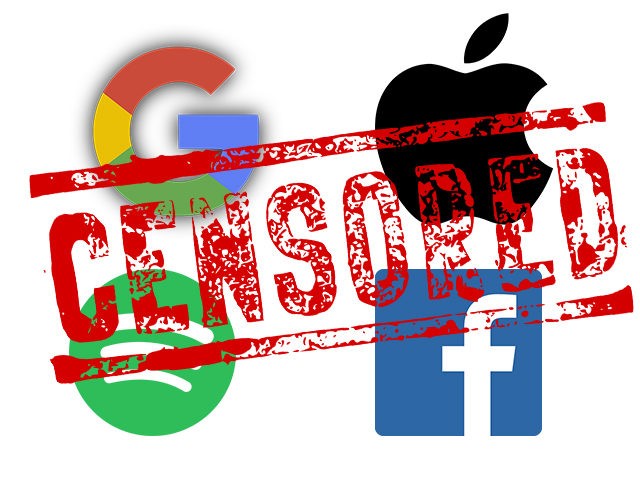Sen. Ted Cruz (R-TX) sent a letter to United States Trade Representative Robert Lighthizer Friday, urging him to remove language that would enshrine Section 230 of the Communications Decency Act in the USMCA and the U.S.-Japan trade agreements.
Cruz, one of the leading big tech critics in the Senate, called on Lighthizer to remove language in the United States-Mexico-Canada (USMCA) and U.S.-Japan trade agreements that would enshrine technology platforms’ legal immunity. The senator cited Article 19.17 of the USMCA and Article 18, Sections 2 and 3, in the U.S.-Japan Trade Agreement as areas of concern.
The Texas conservative contended that both treaties would enshrine Section 230 of the Communications Decency Act. Section 230 grants technology companies such as Facebook, Google, and Twitter increased legal immunity to moderate content on their platforms to prevent frivolous lawsuits. Conservatives and many tech experts contend that Section 230 grants these social media platforms too much legal immunity, thus allowing them to censor conservative and alternative voices on the Internet without significant legal recourse.
Breitbart News’s Allum Bokhari has detailed that Article 19.17 in the USMCA grants social media companies even broader legal immunity in the USMCA.
The Texas senator said that, because Congress has continued to consider whether to amend or eliminate Section 230, “enshrining” Section 230 “would be a mistake.”
Sen. Cruz wrote in his letter to Lighthizer:
I appreciate the progress President Trump has made in ensuring our trade deals benefit American workers, ranchers, and farmers, and further strengthen our economy. American trade deals should reflect settled American law, values, and customs. They should not contain provisions that are the subject of ongoing debate. […] With members of both the Senate and House of Representatives seriously considering whether to amend or eliminate Section 230’s grant of immunity because big tech is not living up to its end of the legislative bargain, I believe that enshrining it in our trade agreements would be a mistake.
Sen. Cruz noted that even influential Republicans such as Senate Majority Leader Mitch McConnell (R-KY) have faced censorship from America’s largest technology companies. Further, the senator said that adding language mirroring Section 230 will put lawmakers in a difficult position to either abandon efforts to “hold big tech companies accountable” or breach the trade agreements by amending Section 230. Cruz wrote:
From Twitter locking the account of Senate Majority Leader Mitch McConnell’s campaign to YouTube demonetizing a conservative comedian’s account following pressure from the left, the examples of censorship are as disturbing as they are numerous. That is why elected officials are increasingly advocating for Section 230’s revision or repeal. […] if this language remains in these trade agreements, elected officials will face a terrible dilemma: either abandon efforts to hold big tech companies accountable, or revise Section 230 and put the United States in breach.
Cruz said Lighthizer could simply remove Article 19.17 from the USCMA and Article 18, Sections 2 and 3 from the U.S.-Japan trade agreements to prevent this dilemma for Congress.
“There is a better way,” Cruz charged. “I request that you remove Article 19.17 from the USMCA, remove Article 18, Section 2 and 3 in the U.S.-Japan Trade Agreement, and refrain from including similar language in future trade agreements.”
Sen. Cruz is not the first Republican or Democrat to sound the alarm over the USMCA or U.S.-Japan trade agreements’ inclusion of language mirroring Section 230.
Rep. Paul Gosar (R-AZ), a member of the House Freedom Caucus, and Rep. Matt Gaetz (R-FL) sent a letter to Lighthizer in May, expressing concern over how Article 19.17 of the USMCA could codify Section 230.
Gosar told Breitbart News in May:
Tech companies have violated Americans’ privacy, manipulated users, violated consent decrees, and continue to engage in censorship of the public square. They shouldn’t be rewarded with an international liability shield, codified in a permanent trade agreement and possibly future pacts as well. The people’s representatives should have the opportunity to continue to reform the laws that underpin the Internet, including section 230 of the Communications Decency Act.
House Energy and Commerce Chairman Frank Pallone (D-NJ) and Ranking Member Greg Walden (R-OR) wrote to Lighthizer in August, contending that they found it “inappropriate” to put Section 230 language in the USMCA while “such serious policy discussions” on telecommunications policy continue.
“We do not believe any provision regarding intermediary liability protections of the type created by Article 19.17 are ripe for inclusion in any trade deal going forward,” the congressmen added.
Sean Moran is a congressional reporter for Breitbart News. Follow him on Twitter @SeanMoran3.

COMMENTS
Please let us know if you're having issues with commenting.